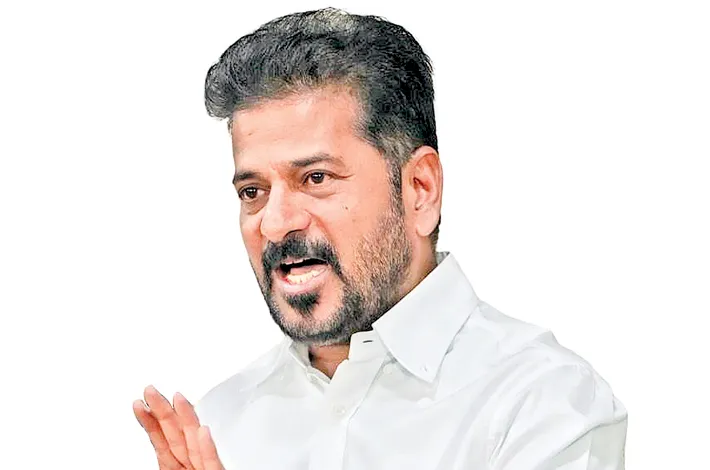How to stay calm when relationships turn sour
01-05-2025 12:00:00 AM

Navigating marital challenges in the Indian context
Marriage in India is often seen as a sacred bond, not just between two individuals but between families, communities, and traditions. However, like any relationship, marriages can face turbulence. When the relationship between a husband and wife turns sour, emotions can run high, and the pressure of societal expectations can make it even harder to stay calm.
In the Indian context, where cultural norms, family involvement, and gender roles play significant roles, maintaining composure during marital discord requires a blend of emotional intelligence, cultural awareness, and practical strategies. This article explores ways to stay calm and navigate challenges when a marriage hits rough waters.
Understanding the Indian Context
In India, marriages are often deeply intertwined with family dynamics, societal expectations, and traditional values. Couples may face pressure to uphold family honor, maintain appearances, or adhere to roles prescribed by culture or religion. When conflicts arise, these external factors can amplify stress. Common issues like financial strain, interference from in-laws, mismatched expectations, or communication gaps can strain the relationship. Additionally, the stigma around separation or divorce in many Indian communities can make couples feel trapped, increasing tension.
Staying calm in such situations is not about suppressing emotions but about managing them constructively. Below are practical steps to maintain peace of mind and approach marital discord with clarity.
1. Acknowledge Your Emotions Without Judgment
The first step to staying calm is recognizing your feelings—whether it’s anger, hurt, or frustration. In Indian households, expressing emotions openly, especially for men, can sometimes be discouraged due to cultural norms around stoicism or "saving face." However, bottling up emotions can lead to outbursts or resentment.
Take time to identify what you’re feeling. For example, if your spouse’s behavior triggers anger, ask yourself: Is it their words, or is it the underlying fear of losing respect or love? Journaling or reflecting quietly can help. For women, who may feel societal pressure to "adjust" or prioritize family harmony, acknowledging personal hurt is equally important. Validating your emotions privately allows you to approach the situation with a clearer mind.
2. Practice Mindful Communication
Communication breakdowns are a common cause of marital discord. In the heat of an argument, words can escalate tensions, especially when cultural phrases like “tum hamesha aisa hi karte ho” (you always do this) or “tumhe meri parwah nahi” (you don’t care about me) come into play. These statements can feel accusatory and shut down dialogue.
To stay calm, practice mindful communication. Use “I” statements to express feelings without blaming your spouse. For instance, say, “I feel hurt when my opinions are dismissed” instead of “You never listen to me.” This approach reduces defensiveness and fosters understanding. Additionally, choose the right time to talk—avoid discussing sensitive issues when either of you is tired, stressed, or distracted by household responsibilities.
In the Indian context, where joint families are common, privacy for such conversations can be scarce. Find a quiet moment, perhaps after children are asleep or during a walk, to discuss concerns calmly.
3. Lean on Cultural and Spiritual Practices
India’s rich cultural and spiritual heritage offers tools for emotional resilience. Practices like meditation, yoga, or pranayama (breathing exercises) can help regulate emotions and reduce stress. For example, deep breathing techniques like Anulom Vilom can calm the nervous system during heated moments. Many Indian couples find solace in spiritual rituals, such as praying together or visiting a temple, mosque, or gurudwara, which can foster a sense of shared purpose.
Reading texts like the Bhagavad Gita or listening to discourses by spiritual leaders can provide perspective on patience and forgiveness. Even non-religious couples can benefit from mindfulness practices rooted in Indian traditions, such as Vipassana meditation, to cultivate inner peace.
4. Set Boundaries with Family Involvement
In Indian marriages, in-laws and extended family often play a significant role. While their involvement can be supportive, it can also complicate conflicts. For instance, a wife may feel caught between her husband and her in-laws’ expectations, or a husband may struggle with balancing his parents’ opinions and his wife’s needs.
To stay calm, set respectful boundaries. If family members are contributing to the tension, have an open conversation with your spouse about limiting their involvement in personal disputes. For example, politely request that disagreements remain between the two of you rather than being discussed with relatives. This preserves the couple’s autonomy and reduces external pressure.
5. Seek Support Wisely
In India, discussing marital issues with outsiders can feel taboo due to concerns about family reputation. However, bottling up problems can worsen stress. Choose a trusted confidant—a friend, sibling, or counselor—who can offer an unbiased perspective. Professional counseling, though still stigmatized in some communities, is gaining acceptance in urban India. Online platforms and tele-counseling services make it easier to seek help discreetly.
If approaching a counselor feels daunting, consider community resources like religious leaders or elders who may offer guidance rooted in cultural values. The key is to seek support that aligns with your comfort level and respects your privacy.
6. Focus on Self-Care and Perspective
Marital discord can consume your mental energy, leaving you drained. Prioritize self-care to maintain emotional balance. Engage in activities that bring joy, such as cooking, gardening, or listening to music. Physical exercise, like a morning walk or dance, can release pent-up stress.
Reflect on the bigger picture. In Indian culture, marriage is often viewed as a lifelong commitment. Ask yourself: Is this issue temporary, or is it a recurring pattern? Focusing on shared goals—like raising children or building a stable future—can help you approach conflicts with patience rather than impulsiveness.
7. Know When to Pause
Sometimes, the best way to stay calm is to step back. In Indian households, where couples often share responsibilities like childcare or household chores, finding space can be challenging. Agree with your spouse to take a “time-out” during heated arguments. This could mean stepping into another room for a few minutes or taking a short walk. Pausing prevents escalation and gives both partners time to cool off.
Conclusion
Staying calm when a marriage turns sour in the Indian context requires patience, cultural sensitivity, and proactive effort. By acknowledging emotions, communicating mindfully, leveraging cultural practices, and setting boundaries, couples can navigate challenges with grace. While societal pressures and family dynamics add complexity, focusing on self-care and mutual respect can pave the way for healing. Marriage is a journey, and even in tough times, approaching conflicts with calmness can strengthen the bond and foster hope for a brighter future.








